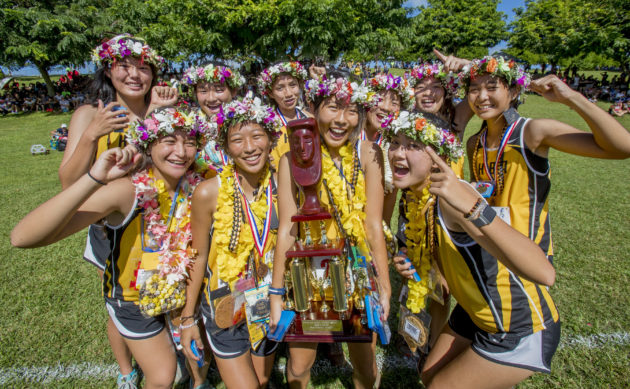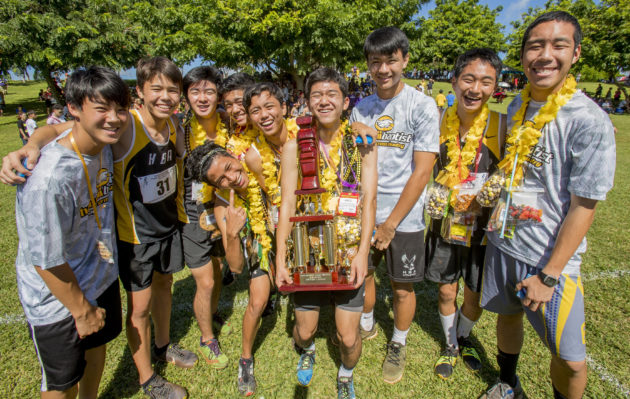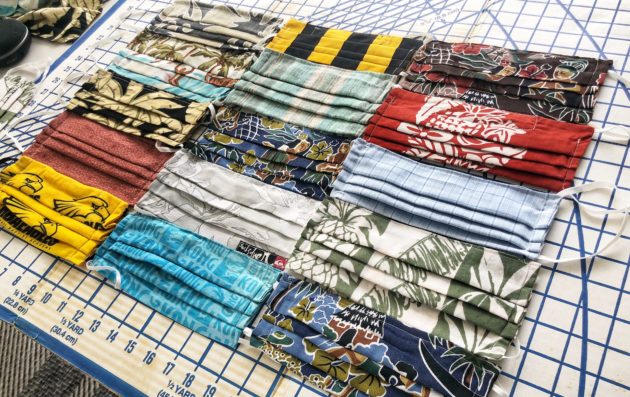
Deren Oshiro is approaching expert level on Zoom.
As an administrator and decision maker, the longtime athletic director at Hawaii Baptist Academy has engaged in many conversations with his peers during the COVID-19 pandemic. Campuses are closed statewide as the fall semester goes virtual across the state. Oshiro and other administrators have been active with virtual meetings as part of the Hawaii High School Athletic Association’s Start Date Committee.
At HBA, which regularly has one of the largest cross country programs from middle to high school, physical activity is a big part of school culture.
“We hope to offer some sports programs internally if we can’t have actual league or state competition. The school program might consist of modified practices, clinics or intramural. Maybe fitness workouts, too,” Oshiro said. “Many of the other ILH schools are planning likewise as long as we can do it safely.”
Getting students back in the classroom is a test of patience. High schools and universities on the mainland are learning as they go. The University of Alabama reported 600 new cases among students earlier in the week. A high school in Georgia took zero precautions and had more than 50 cases in less than one week. In recent months, new tests have begun to accelerate the process of coronavirus diagnoses.
In Hawaii, the average of new COVID-19 cases has reached nearly 250 per day in the past week with more free “surge testing” paid for by the federal government. That includes 306 new cases on Thursday.
“I think our school community realizes that returning to some form of in-person academic delivery is our priority and they trust we’ll do what we can — safely and at the appropriate time — for athletics,” Oshiro said.
Being the parent of a student-athlete brings it all home. Son Peyton ran for HBA’s cross country team and is also on the squad as a freshman at Chaminade. Sports are in hibernation mode while many questions and implementation of actual competition remain on the shelf.
“Being a parent of a college cross country runner, there really hasn’t been a difference in what we see happening now versus pre-pandemic. Peyton’s regular preseason training is mostly individual,” Oshiro said. “The PacWest moved the fall sports to 2021, so he’s taking a break right now.”
Likewise, high school cross country is one of the fall sports that has been postponed until next year. Though its core is about individual effort, the best runners often come from supportive teams and programs.
“He hasn’t run with groups since the season was postponed. The mayor’s order allows for no mask if exercising with proper physical distancing, so he’s been running without a mask,” Oshiro said.
Life has changed for just about every human. Oshiro jests that the fall of 2019, when things were normal, was “A Wonderful Life.” In 2020, it has been “Groundhog Day,” he noted. The daily routine involves virtual meetings for HBA, the Interscholastic League of Honolulu, National Interscholastic Association of Athletic Administrators and the Hawaii Interscholastic Athletic Directors Association.
Oshiro became HIADA’s president in 2019. Former Chaminade athletic director Bill Villa is the executive director. HIADA has undergone a transformation and become an incorporated nonprofit.

The HHSAA has exercised equal parts caution and flexibility since the pandemic forced school closures in March. The HHSAA waited out the unknown as long as it could before cancelling the spring state championship season.
“The collaboration and transparency from all five leagues statewide has been great. (Executive director) Chris Chun has kept everyone moving forward together and all league reps have shared ideas freely,” Oshiro said. “We all hope sports can resume at some point. There’s so much uncertainty due to COVID-19.”
He is one of two ADs representing Section 7, comprised of Hawaii, California, Nevada, Utah and Arizona, on the NIAAA’s new DEI Committee.
“This is a committee to address issues with ADs from underrepresented ethnic groups or communities,” Oshiro said. “DEI is diversity, equity, inclusion.”
The value of technology is immeasurable. A decade or two ago, communication and information would have been more difficult to access. But with no games until, maybe, October — air riflery and bowling are on the schedule if and when campuses open — Oshiro finds his world flip-flopped.
“I’ve done more cooking for my family in the past four to five months than in the past 20 years combined. I’m usually not home at dinner time during a regular athletics year,” he said. “I cook easy stuff. Various stir fry dishes, pasta dishes, orzo salad.”
Wendy Oshiro, his wife, has taught him a new skill.
“Wendy taught me how to sew. I’ve made masks out of repurposed aloha shirts and have given them away for free, only asking the requesters to pay it forward somehow,” he said, noting that some of the fabric was donated by Fabric Mart.
The requests have come from near and far: California, New York, North Carolina, Nevada.
“Folks have donated to food pantries, a backpack drive, a faith-based recovery program and services for kupuna,” Oshiro said.

COMMENTS